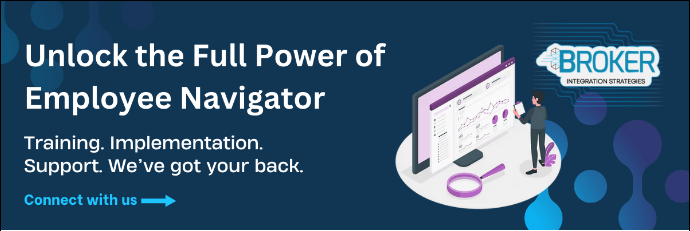Share article
Prefer to listen instead of read? No problem! Click below to listen to the blog post.
In America, we love to romanticize the entrepreneur. The hustler. The self-made millionaire. The lone wolf who grinds their way to success with late nights and cots in the office.
So many want to be this person.
And then they get started with their own business and realize just how damn hard it is. The pressure is relentless. The hours are long. The weight of decision-making never ends. And the emotional toll is heavy and can be relationship-breaking. Or at least bending.
Deciding to strike out on your own to start an employee benefits agency very much falls into this category. Even the scrappiest one-person shop relies on others—partners, family, friends, peers, mentors—to survive, let alone grow. And if you’ve built something worth protecting, there’s no way you did it alone.
I read Dr. Lakeysha Hallmon’s book, No One is Self-Made, and her message hits home hard because, as much as we put into our businesses, it wouldn’t happen without our support systems. No one does it alone. It can feel like we’re alone a lot of the time when we lie awake, stressing about clients, team members, payroll, legal obligations: The list truly feels endless.
But there are always people who take our calls, offer advice, create for us, manage things in our absence, listen to our way-too-long stories, and organize the family events we’d probably not make otherwise.
The myth of the “self-made” leader
Hallmon is the founder of The Village Market, a community-driven retail experience that has funneled millions into Black-owned businesses. Her book clearly lays out that our success is not solely our own, and pretending otherwise does real damage to those who’ve been there along the way and those coming up after us.
Glorifying self-reliance to the point of myth hurts everyone.
When we tell the story of someone who “did it all on their own,” we erase the truth. We crop people out of the picture: mentors, friends, partners, coaches, even clients. And we set up the next generation to fail by creating impossible standards. They hear the rhetoric and think that’s what they must achieve, but it’s completely false and unachievable.
By perpetuating this idea, we end up burned out and ashamed to ask for help, assuming needing support is a weakness. As Hallmon says, “Every success story is supported by mentors, friends… the quiet strength of loved ones.”
Having support doesn’t diminish your accomplishments.
Your community is your most valuable resource. And to access it, you have to stop pretending and start asking. You need to get comfortable accepting the help being offered.
It doesn’t matter how big or small your agency is; building a business without a community is a lonely, unsustainable path.
Mindset shifts that change the game
Growing a business with a community mentality takes intentional work, and it starts with your mindset.
A scarcity mindset tells you to hoard ideas, avoid feedback, and never show weakness. You fear someone else’s voice will overpower yours. That someone else’s contribution might outshine yours.
But abundance thinking recognizes that your voice gets stronger when others amplify it.
Welcoming input, partnering with others, and being honest about your blind spots isn’t a weakness. Quite the opposite, we call that leadership.
Confidence + humility
It takes real confidence to be vulnerable.
To admit when you don’t have the answer.
To ask for help without apology.
Hallmon reminds us that when people feel trust in a person, helping them feels like a privilege, not a burden. Bob Burg and John David Mann wrote a whole book about this idea that’s also worth reading: The Go Giver.
However, leaning into this type of openness only works when it’s rooted in self-awareness. You have to know yourself, your values, goals, and boundaries to welcome the support. Humility allows you to receive without insecurity. And when you’re running a business, that provides an edge, not a liability.
You need to decide if you want to operate as a lone wolf or if you want to embrace community and help elevate the people around you. The choice is yours.
If you’re leading a benefits agency or thinking about it, consider this a PSA.
You weren’t built to do this alone. And you don’t have to.
Here’s your challenge:
- Name three people in your personal or professional life who’ve helped you along the way.
- Take one action this week to reinvest in them or in someone new. That could be making a referral, listening to something going on in their world, or simply saying thank you.
- Tell the story. Share this blog and name the people who’ve shaped your journey. Give them some credit for the role they’ve played in your success.
No one is self-made, and we shouldn’t pretend otherwise.
Sponsored ad by our Friendor, Broker Integration Strategies. Click above to visit their site.
Content originally published by Q4intelligence
Photo by svyatkovsky

